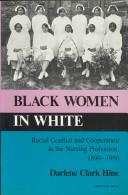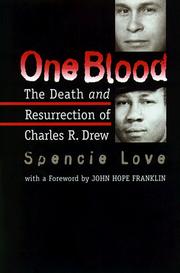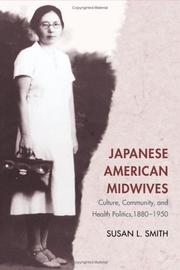| Listing 1 - 7 of 7 |
Sort by
|
Book
ISBN: 1782047603 1847011411 Year: 2016 Publisher: Woodbridge, Suffolk : James Currey, an imprint of Boydell & Brewer Ltd.,
Abstract | Keywords | Export | Availability | Bookmark
 Loading...
Loading...Choose an application
- Reference Manager
- EndNote
- RefWorks (Direct export to RefWorks)
This revisionary account of the Soweto Uprising of June 1976 and the decade preceding it transforms our understanding of what led to this crucial flashpoint of South Africa's history. Brown argues that far from there being "quiescence" following the Sharpeville Massacre and the suppression of African opposition movements, during which they went underground, this period was marked by experiments inresistance and attempts to develop new forms of politics that prepared the ground for the Uprising. Students at South Africa's segregated universities began to re-organise themselves as a political force; new ideas about race reinvigorated political thought; debates around confrontation shaped the development of new forms of protest. The protest then began to move off university campuses and ontothe streets: through the independent actions of workers in Durban, and attempts by students to link their struggles with a broader agenda. These actions made protest public once again, and helped establish the patterns of popular action and state response that would come to shape the events in Soweto on 16 June 1976. Julian Brown is a Lecturer in the Department of Political Studies atthe University of the Witwatersrand, Johannesburg.Southern Africa (South Africa, Namibia, Lesotho, Swaziland & Botswana): Jacana
'throws new light on the background to the Soweto Uprising, providing insight into white and black student politics, worker protest and broader dissent' - William Beinart, University of Oxford
'an extremely important contribution to thehistoriography on protest in South Africa. It links black and white student protests (too often studied in isolation from one another) to workers' movements by looking at the changing forms of protest during the 1960s and 1970s, and the apartheid government's changing responses.' - Anne Heffernan, University of the Witwatersrand. 'By showing how the Soweto Uprising served as a precursorfor later historical and political events, the author convincingly shows the continuity from one from one protest and decade to the next.' - Dawne Curry, University of Nebraska-Lincoln.
South Africa --- History --- Soweto Uprising (South Africa : 1976) --- 1976 --- POLITICAL SCIENCE / History & Theory. --- 1976. --- African Studies. --- South Africa. --- Soweto Uprising. --- aparthied. --- diaspora. --- globalization. --- political science. --- postcolonialism. --- protest. --- racial relations. --- racism. --- revolution. --- segregation.

ISBN: 0585211515 0253205298 9780585211510 0253327733 9780253327734 9780253205292 0253056950 9780253056955 Year: 1989 Publisher: Bloomington, IN : Indiana University Press,
Abstract | Keywords | Export | Availability | Bookmark
 Loading...
Loading...Choose an application
- Reference Manager
- EndNote
- RefWorks (Direct export to RefWorks)
African American nurses --- Nursing --- African Americans --- History of Nursing --- Race Relations --- History. --- history --- United States --- Race relations --- Relations, Race --- Nursing, History --- History Nursing --- History Nursings --- Nursing Histories --- Nursing History --- Nursings, History --- Nurses --- Nursing Care --- Americans, African --- Afro-American nurses --- Negro nurses --- Nurses, African American --- Psychology, Social --- African-Americans --- African-American --- African Americans in medicine --- Interracial Relations --- Racial Relations --- Interracial Relation --- Relation, Interracial --- Relations, Interracial --- Relations, Racial --- African American --- Afro-American --- Afro-Americans --- Afro American --- Afro Americans --- American, African --- Black Americans --- American, Black --- Americans, Black --- Black American --- African American nurses. --- Race relations. --- Integration, Racial --- Race problems --- Race question --- Ethnology --- Social problems --- Sociology --- Ethnic relations --- Minorities --- Racism

ISBN: 0807863068 9780807863060 0807822507 9780807822500 0807846821 9780807846827 9798890880710 Year: 1996 Publisher: Chapel Hill, NC : The University of North Carolina Press,
Abstract | Keywords | Export | Availability | Bookmark
 Loading...
Loading...Choose an application
- Reference Manager
- EndNote
- RefWorks (Direct export to RefWorks)
One Blood traces the life of the famous black scientist and surgeon Dr. Charles Drew and the well-known legend about his death. On April 1, 1950, Drew, then forty-five years old, died after an auto accident in rural North Carolina. Within hours, rumors spread: he had bled to death because a whites-only hospital refused to treat him.
Discrimination in medical care --- Race relations --- African Americans. --- Physicians. --- Delivery of Health Care --- Prejudice. --- Race Relations. --- Race relations (in religion, folklore, etc.) --- Interracial Relations --- Racial Relations --- Interracial Relation --- Relation, Interracial --- Relations, Interracial --- Relations, Race --- Relations, Racial --- Psychology, Social --- Race discrimination in medical care --- Medical care --- Anti-Semitism --- Implicit Bias --- Islamophobia --- Anti Semitism --- Anti-Semitisms --- Bia, Implicit --- Bias, Implicit --- Islamophobias --- Prejudices --- Physician --- African-Americans --- African American --- African-American --- Afro-American --- Afro-Americans --- Afro American --- Afro Americans --- American, African --- History --- history. --- Drew, Charles Richard, --- Drew, Charles R. --- Death and burial. --- Legends. --- United States --- United States. --- Race relations. --- Race question --- Black Americans --- American, Black --- Americans, Black --- Black American --- Negro --- African Americans --- Blacks --- Negroes
Book
ISBN: 902650733X Year: 1986 Publisher: Lisse Swets en Zeitlinger
Abstract | Keywords | Export | Availability | Bookmark
 Loading...
Loading...Choose an application
- Reference Manager
- EndNote
- RefWorks (Direct export to RefWorks)
Adoption. --- Psychology, Child. --- Interpersonal Relations. --- Race Relations. --- 347.63 --- adoptie --- kinderpsychologie --- integratie --- #SBIB:HIVA --- #SBIB:316.356.2H3690 --- Desegregation --- Relations, Race --- Psychology, Social --- Gender Issues --- Husband-Wife Communication --- Partner Communication --- Relations, Gender --- Gender Relations --- Social Interaction --- Communication, Husband-Wife --- Communication, Partner --- Communications, Husband-Wife --- Communications, Partner --- Gender Issue --- Gender Relation --- Husband Wife Communication --- Husband-Wife Communications --- Interaction, Social --- Interactions, Social --- Interpersonal Relation --- Issue, Gender --- Issues, Gender --- Partner Communications --- Relation, Gender --- Relation, Interpersonal --- Relations, Interpersonal --- Social Interactions --- Friends --- Emotional Intelligence --- Psychology, Infant --- Psychology, Pediatric --- Child Psychology --- Infant Psychology --- Pediatric Psychology --- Child --- Infant --- Psychology, Developmental --- Adoptions --- Kinderrecht. Jeugdrecht. Afstamming. Adoptie. Kinderbescherming. Proefbuisbaby. Draagmoeder. Leenmoeder.--(huwelijksrecht) --- 362.7 --- 159.987 --- 301.17 --- Gezinssociologie: adoptie --- psychology --- 347.63 Kinderrecht. Jeugdrecht. Afstamming. Adoptie. Kinderbescherming. Proefbuisbaby. Draagmoeder. Leenmoeder.--(huwelijksrecht) --- Child, Adopted --- Interracial Relations --- Racial Relations --- Interracial Relation --- Relation, Interracial --- Relations, Interracial --- Relations, Racial --- Adoption --- Psychology, Child --- Interpersonal Relations --- Race Relations --- Social Relationships --- Relationship, Social --- Relationships, Social --- Social Relationship --- Social Behavior
Book
ISBN: 9781469617831 1469617838 9781469617848 1469617846 9781469617855 1469617854 9798890844842 Year: 2014 Publisher: Chapel Hill, NC : Baltimore, Md. : University of North Carolina Press, Project MUSE,
Abstract | Keywords | Export | Availability | Bookmark
 Loading...
Loading...Choose an application
- Reference Manager
- EndNote
- RefWorks (Direct export to RefWorks)
Pigmentocracies --the fruit of the multiyear Project on Ethnicity and Race in Latin America (PERLA)--is a richly revealing analysis of contemporary attitudes toward ethnicity and race in Brazil, Colombia, Mexico, and Peru, four of Latin America's most populous nations. Based on extensive, original sociological and anthropological data generated by PERLA, this landmark study analyzes ethnoracial classification, inequality, and discrimination, as well as public opinion about Afro-descended and indigenous social movements and policies that foster greater social inclusiveness, all set within an ethnoracial history of each country. A once-in-a-generation examination of contemporary ethnicity, this book promises to contribute in significant ways to policymaking and public opinion in Latin America. Edward Telles, PERLA's principal investigator, explains that profound historical and political forces, including multiculturalism, have helped to shape the formation of ethnic identities and the nature of social relations within and across nations. One of Pigmentocracies 's many important conclusions is that unequal social and economic status is at least as much a function of skin color as of ethnoracial identification. Investigators also found high rates of discrimination by color and ethnicity widely reported by both targets and witnesses. Still, substantial support across countries was found for multicultural-affirmative policies--a notable result given that in much of modern Latin America race and ethnicity have been downplayed or ignored as key factors despite their importance for earlier nation-building.
Ethnic groups --- Latin America --- Race relations --- Ethnic Groups --- Cross-Cultural Comparison --- Race Relations --- Interracial Relations --- Racial Relations --- Interracial Relation --- Relation, Interracial --- Relations, Interracial --- Relations, Race --- Relations, Racial --- Psychology, Social --- Transcultural Studies --- Comparison, Cross-Cultural --- Comparisons, Cross-Cultural --- Cross Cultural Comparison --- Cross-Cultural Comparisons --- Studies, Transcultural --- Study, Transcultural --- Transcultural Study --- Cultural Characteristics --- Culture --- Ethnicity --- Nationality --- Ethnic Group --- Ethnic identities --- Ethnic nations (Ethnic groups) --- Groups, Ethnic --- Kindred groups (Ethnic groups) --- Nationalities (Ethnic groups) --- Peoples (Ethnic groups) --- Ethnology --- Latin America. --- Asociación Latinoamericana de Libre Comercio countries --- Neotropical region --- Neotropics --- New World tropics --- Spanish America --- #KVHA:Taalkunde; Spaans --- #KVHA:Cultuurgeschiedenis; Latijns-Amerika --- #KVHA:Ethniciteit; Latijns-Amerika --- Nationalities --- Ethnic groups - Latin America - Cross-cultural studies --- Latin America - Race relations - Cross-cultural studies

ISBN: 1580461808 1580463134 9786612080555 1282080555 158046677X Year: 2005 Publisher: Rochester, NY : University of Rochester Press,
Abstract | Keywords | Export | Availability | Bookmark
 Loading...
Loading...Choose an application
- Reference Manager
- EndNote
- RefWorks (Direct export to RefWorks)
Autobiography of an Ex-White Man is an intensely personal meditation on the nature of America by a White Philosopher who joined a Black Studies Department and found his understanding of the world transformed by the experience. The book begins with an autobiographical narrative of the events leading up to Wolff's transfer from a Philosophy Department to the W. E. B. Du Bois Department of Afro-American Studies at the University of Massachusetts, and his experiences in the Department with his new colleagues, all of whom had come to Academia from the Civil Rights Movement of the 1960s.
Wolff discovered that the apparently simple act of moving across campus to a new Department in a new building worked a startling change in the way he saw himself, his university, and his country. Reading as widely as possible to bring himself up to speed in his new field of academic responsibility, Wolff realized after a bit that his picture of American history and culture was undergoing an irreversible metamorphosis. America, he realized, has from its inception been a land both of Freedom and of Bondage: Freedom for the few, and then for those who are White; Bondage at first for the many, and then for those who are not White. Slavery is thus not an aberration, an accident, a Peculiar Institution -- it is the essence and core of the American experience.
Wolff's optimistic outlook leads him to express the hope that our acknowledging the realities of America's racial history and present will begin to tear down the formidable barrier to change. He sees this refashioning of the American story as a first step toward the crafting of a truly liberatory project.
Robert Paul Wolff is Professor of Afro-American Studies at the University of Massachusetts-Amherst and the author of numerous books, including Introductory Philosophy and In Defense of Anarchism.
African Americans --- Study and teaching --- Historiography --- Civil rights --- United States --- Race relations --- African American philosophy --- Whites --- Massachusetts --- Amherst (Mass.) --- Biography --- College teachers --- Philosophers --- Wolff, Robert Paul --- University of Massachusetts at Amherst --- African American philosophy. --- Scholars --- Academicians --- Academics (Persons) --- College instructors --- College lecturers --- College professors --- College science teachers --- Lectors (Higher education) --- Lecturers, College --- Lecturers, University --- Professors --- Universities and colleges --- University academics --- University instructors --- University lecturers --- University professors --- University teachers --- Teachers --- White persons --- Ethnology --- Caucasian race --- Afro-American philosophy --- Philosophy, African American --- Philosophy, American --- African American studies --- Afro-American studies --- Black studies --- Study and teaching. --- Historiography. --- Civil rights. --- Faculty --- Wolff, Robert Paul. --- University of Massachusetts at Amherst. --- Race relations. --- White people --- American History. --- Black Studies Department. --- Change. --- Liberatory Project. --- Modernity. --- Racial History. --- Racial Relations. --- Slavery. --- White Philosopher.

ISBN: 1283609061 9786613921512 0252092430 9780252092435 9780252030055 0252030052 9780252072475 0252072472 025209123X 9780252091230 0252029615 9780252029615 0252077288 9780252077289 1283028905 9786613028907 9781283028905 6613028908 Year: 2005 Publisher: Urbana : University of Illinois Press,
Abstract | Keywords | Export | Availability | Bookmark
 Loading...
Loading...Choose an application
- Reference Manager
- EndNote
- RefWorks (Direct export to RefWorks)
Setting the history of Japanese American midwives in context, this book reveals little-known ethnic, racial, and regional aspects of women's history and the history of medicine. It demonstrates the impossibility of separating domestic policy from foreign policy, and public health from racial politics, medical care from women's care giving.
Race Relations --- Health Policy --- Asian Americans --- Midwifery --- Japanese --- Japanese American women --- Midwives --- Nursing specialties --- Birth attendants --- Nurse midwives --- Traditional birth attendants --- Medical personnel --- Women, Japanese American --- Women --- Midwife --- Traditional Birth Attendant --- Birth Attendant, Traditional --- Birth Attendants, Traditional --- Traditional Birth Attendants --- Asian Indian Americans --- Cambodian Americans --- Filipino Americans --- Hmong Americans --- Vietnamese Americans --- Chinese Americans --- Japanese Americans --- Korean Americans --- American, Cambodian --- American, Korean --- American, Vietnamese --- Americans, Asian --- Americans, Cambodian --- Americans, Chinese --- Americans, Filipino --- Americans, Hmong --- Americans, Japanese --- Americans, Korean --- Americans, Vietnamese --- Asian American --- Asian Indian American --- Cambodian American --- Chinese American --- Filipino American --- Hmong American --- Indian American, Asian --- Japanese American --- Korean American --- Vietnamese American --- Healthcare Policy --- National Health Policy --- Health Policies --- Health Policy, National --- Healthcare Policies --- National Health Policies --- Policy, Health --- Policy, Healthcare --- Policy, National Health --- Policy Making --- Interracial Relations --- Racial Relations --- Interracial Relation --- Relation, Interracial --- Relations, Interracial --- Relations, Race --- Relations, Racial --- Psychology, Social --- history --- History. --- Japan --- Emigration and immigration --- Feminism --- Women and literature --- Feminism and literature --- American literature --- English literature --- Agrarians (Group of writers) --- Human females --- Wimmin --- Woman --- Womon --- Womyn --- Females --- Human beings --- Femininity --- Intellectual life. --- History --- Books and reading --- Women authors --- History and criticism. --- Asians --- Health Care Policies --- Care Policies, Health --- Health Care Policy --- Policies, Health --- Policies, Health Care --- Policies, Healthcare --- Policy, Health Care
| Listing 1 - 7 of 7 |
Sort by
|

 Search
Search Feedback
Feedback About UniCat
About UniCat  Help
Help News
News